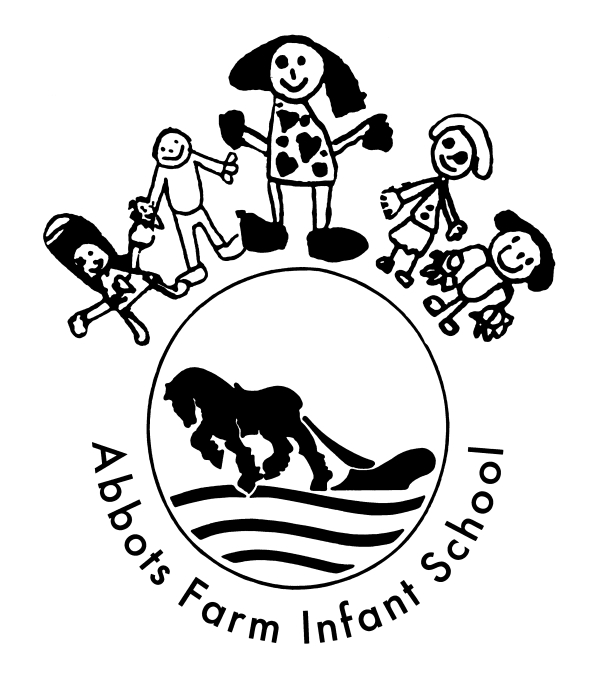Mathematics
Intent
At Abbots Farm Infant School our aim is to ensure that all children have the best grounding in mathematics and we strive to develop logical thinkers. Through Mathematics, we actively aim to provide a relevant, challenging and enjoyable mathematics curriculum for all children. It is our intent to provide children with a high-quality, broad and challenging Mathematics curriculum. Mathematics contributes significantly to the development of communicating, reasoning and problem solving skills. We believe that pupils should have experience of using mathematics in a wide range of contexts throughout the whole curriculum, to enable them to realise the importance of mathematics in everyday life and its relevance to the real world.
Our exciting learning journey will allow for all children to become fluent in the fundamentals of maths, developing their conceptual understanding and the ability to recall and apply knowledge rapidly and accurately. Children will be able to reason mathematically by justifying, making links to known facts, or providing proof using mathematical language. Understanding of concepts will be challenged through solving problems by applying their mathematic knowledge. Links within other subjects will be highlighted and skills and mathematical knowledge will be applied. We will equip children with the foundations of mathematics that are essential to everyday life.
Implementation
We teach Maths through a spiral curriculum where children are taught a progressive range of skills, building on prior knowledge and making connections between different mathematical concepts or domains. They are encouraged to search for patterns and to make estimations, thinking logically about their solutions. They revisit and build on skills taught in the previous term, to gain a deeper understanding of the skills and processes within mathematics. Learning is mapped out, in partnership between the subject leader and class teachers, to the educational programmes of study in the EYFS Statutory framework and through the National Curriculum for KS1 to ensure comprehensive coverage of national expectations and that there is clear progression, consolidation and extension of skills and knowledge. In addition, this ensures that the curriculum is coherent and appropriately sequenced in programmes of study.
We implement our approach through high quality teaching delivering appropriately challenging work for all individuals. Children are taught through clear modelling, alongside experimenting and experience using the concrete, pictorial, abstract approach (CPA).
In EYFS, our young mathematicians will be provided with many exciting opportunities, through planned purposeful play and a mix of adult-led and child-initiated activities, to develop and improve their skills in counting, understanding and using numbers, exploring number patterns, calculating simple addition and subtraction problems; and to describe shapes, space, and measure.
Throughout Key Stage 1, our Mathematics curriculum will provide many opportunities for children to develop confidence and fluency with whole numbers, counting and place value. The use of practical equipment, such as concrete objects and measuring tools, will support the children to gain a deeper conceptual understanding before being challenged through tasks and questions to explain their reasoning and solve a range of problems. The children are equipped with the skills to recognise shapes and their properties and measures to describe and compare different quantities such as length, mass, capacity/volume, time and money.
Through the use of talk for learning strategies, all children develop their explanations and reasoning skills. This also gives them a secure understanding of concepts which have been taught. Children work in pairs, small groups and individually. We encourage children to talk and reason about their maths to embed ideas and understanding. We encourage the children to value each other’s ideas and strategies, making use of a wide range of resources, images and practical experiences, including use of the outdoor spaces.
Correct use of mathematical vocabulary is taught and encouraged throughout. This is explained, particularly where misconceptions can arise and shared with parents.
In addition to taught Mathematics lessons, children participate in a daily mental maths lesson which focuses on developing fluency, recall and confidence. Through the teaching and practice of mental strategies we aim to increase fluency with problem solving tasks. Through continuous provision the children can learn through discovery and practise and embed taught skills.
Children are given extra support when required through the use of intervention planning or differentiated work to match their level of need.
Through careful questioning, listening to children and analysis of work, formative assessments allow teachers to identify particular needs and to support the child, creating firm foundations to their mathematics.
Impact
A variety of methods are used to find out what the children know and understand. Lesson activities are scaffolded to suit the different abilities and learning styles. Evidence of the children’s learning journey is recorded in maths books, on working walls and on Class Dojo.
We measure the impact of our curriculum through the following methods:
- Discussions with children about their learning (pupil voice).
- Coaching with teacher focusing on children’s work and photo evidence and images of the children’s practical learning (particularly in EYFS).
- Coaching with teachers focusing on planning to ensure that all classes have a consistent coverage of the curriculum.
- Coaching with teachers in lessons to continuously improve our teaching of the Maths curriculum.
- All coaching provides opportunities for professional dialogue between teachers and Maths lead which is reflective.
- Progress is measured through teacher assessment at the end of each term and is assessed against the taught curriculum to se whether the children are on track to meet end of year expectations. At the end of the year reception children will be assessed against the Early Years Learning Goal and children in Yr 2 are assessed against the KS1 TAFs.
- Our statutory 2023 data for mathematics shows we are above national:
|
Yr group |
School |
National |
|
EYFS |
85% |
77% |
|
Yr 2 |
76% |
70% |
